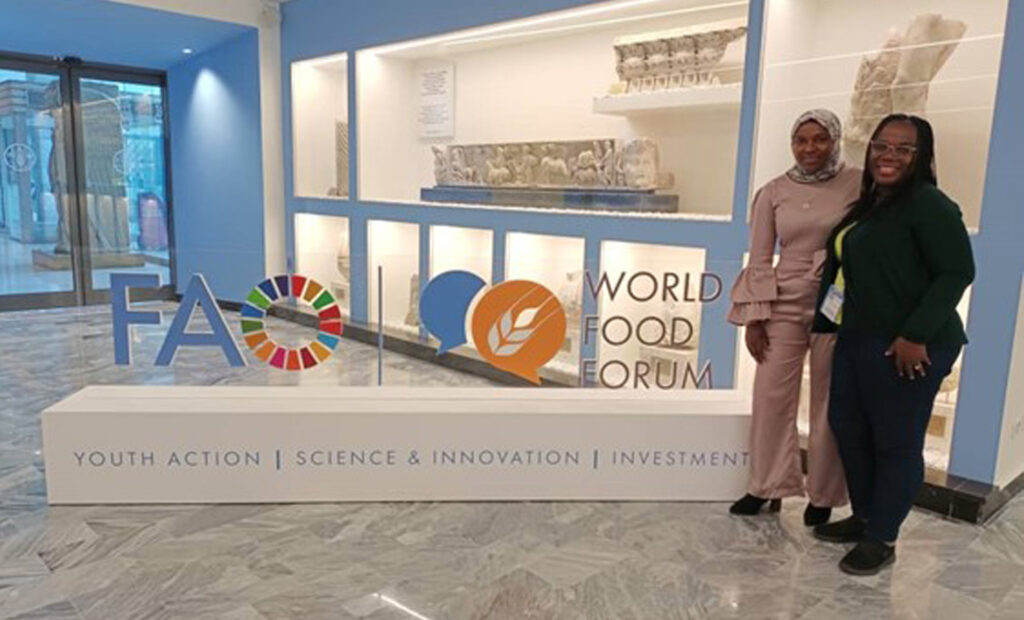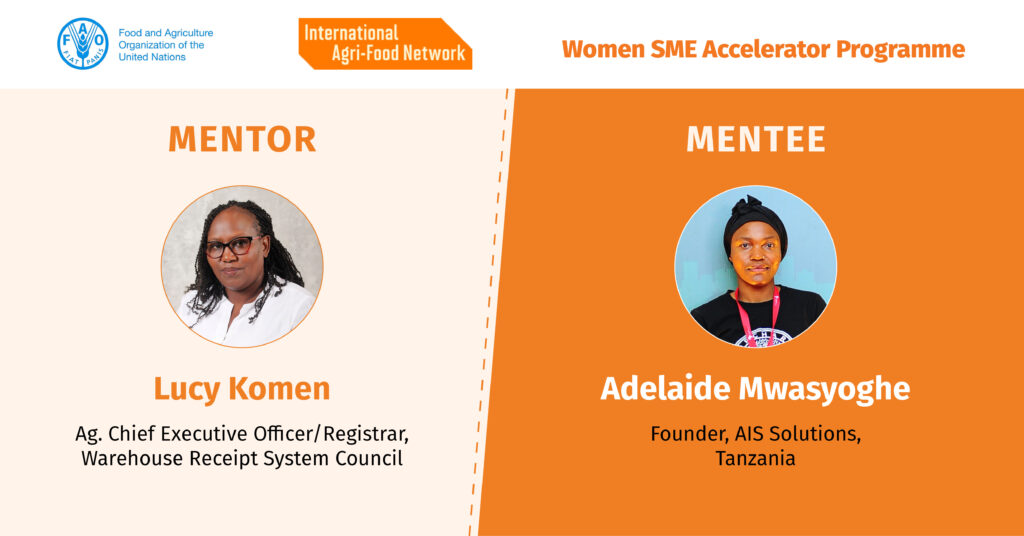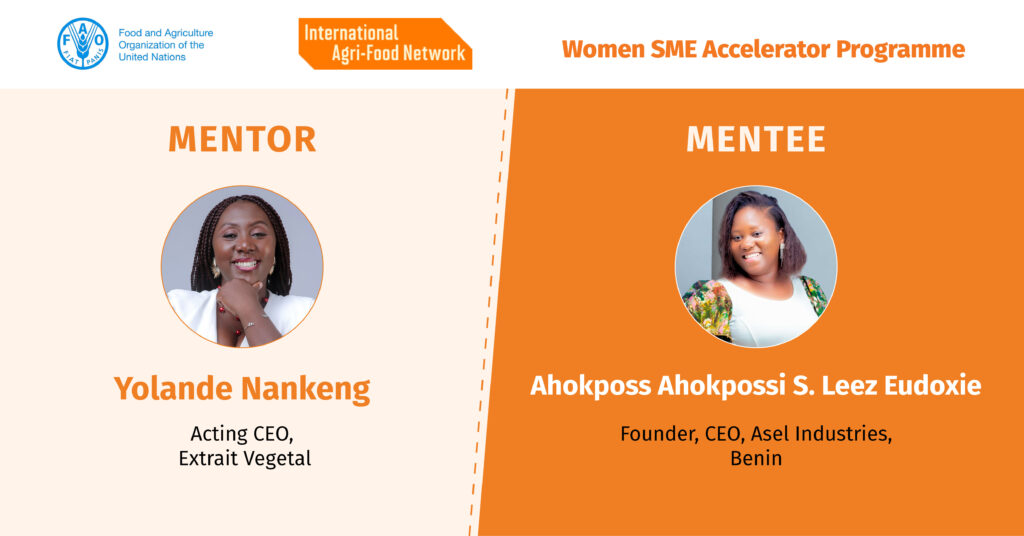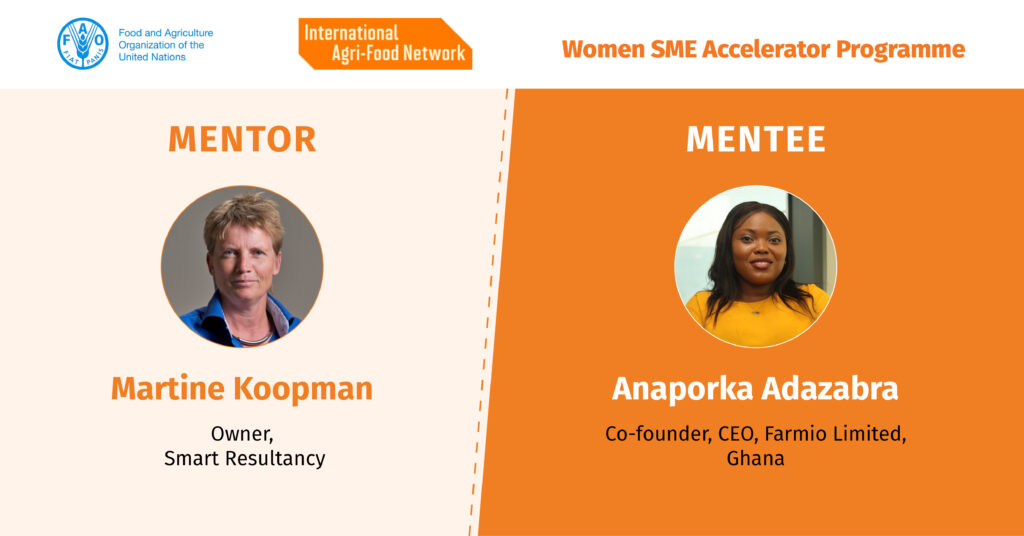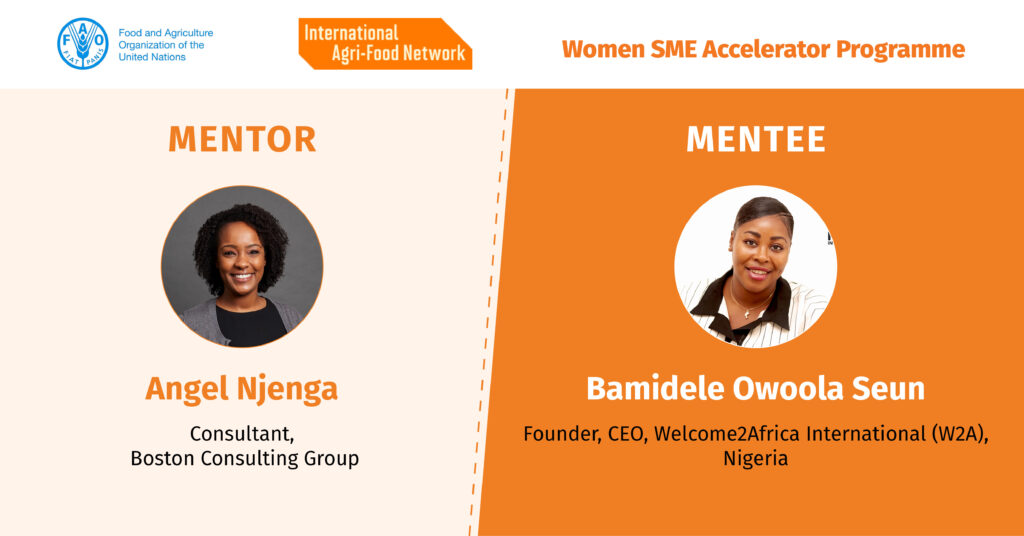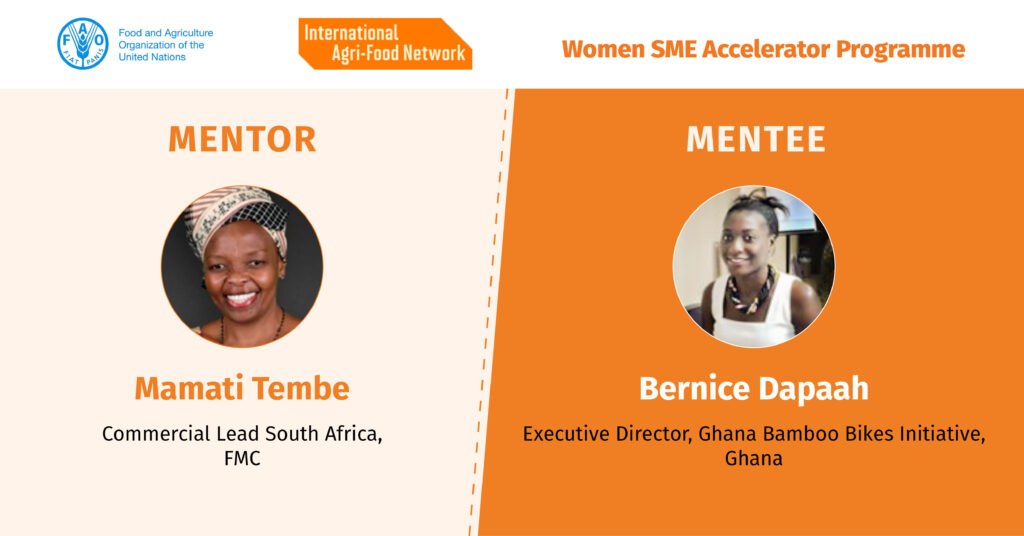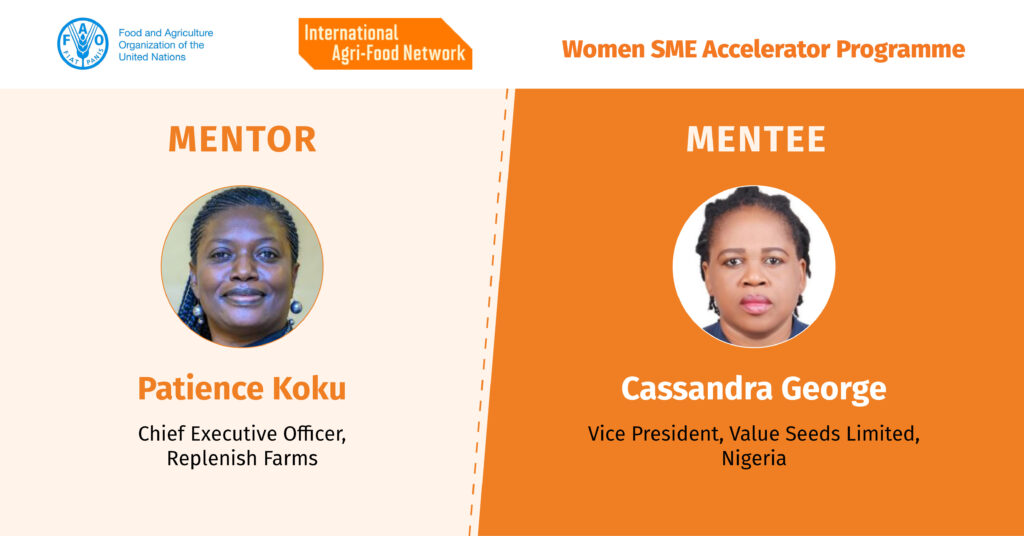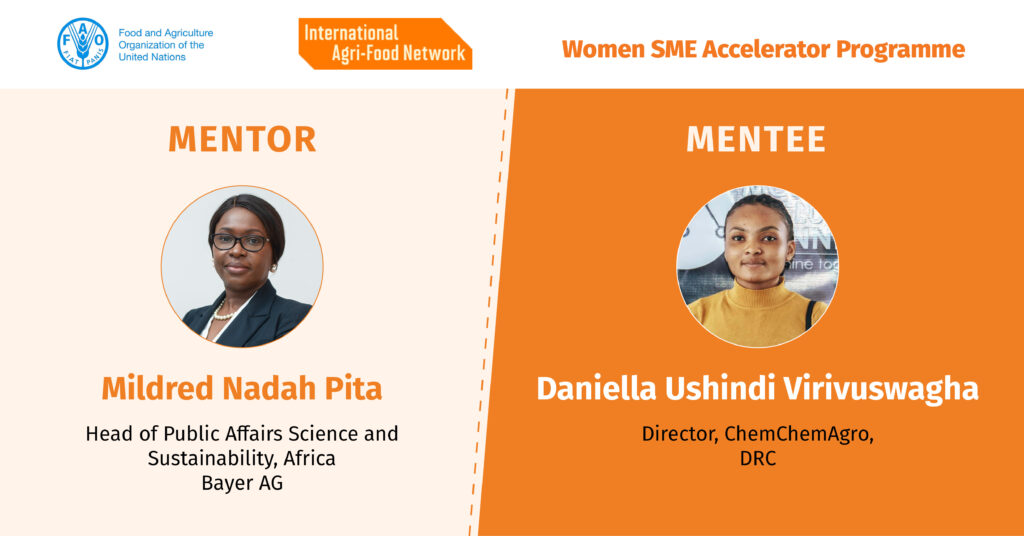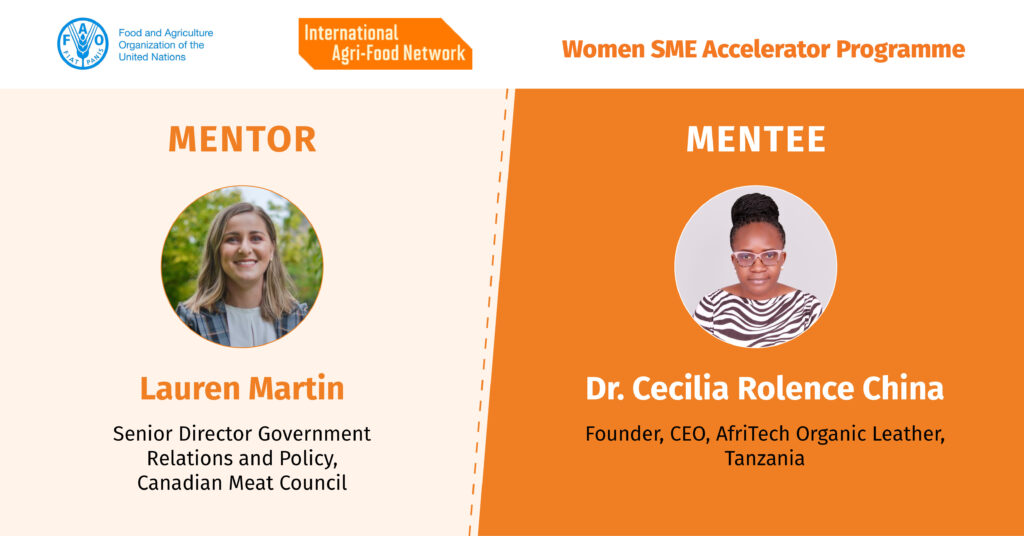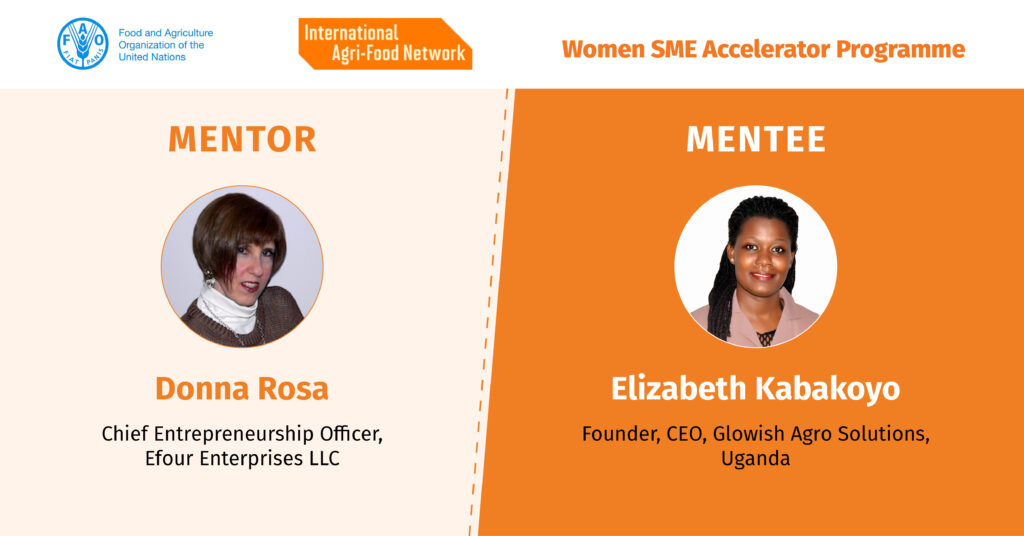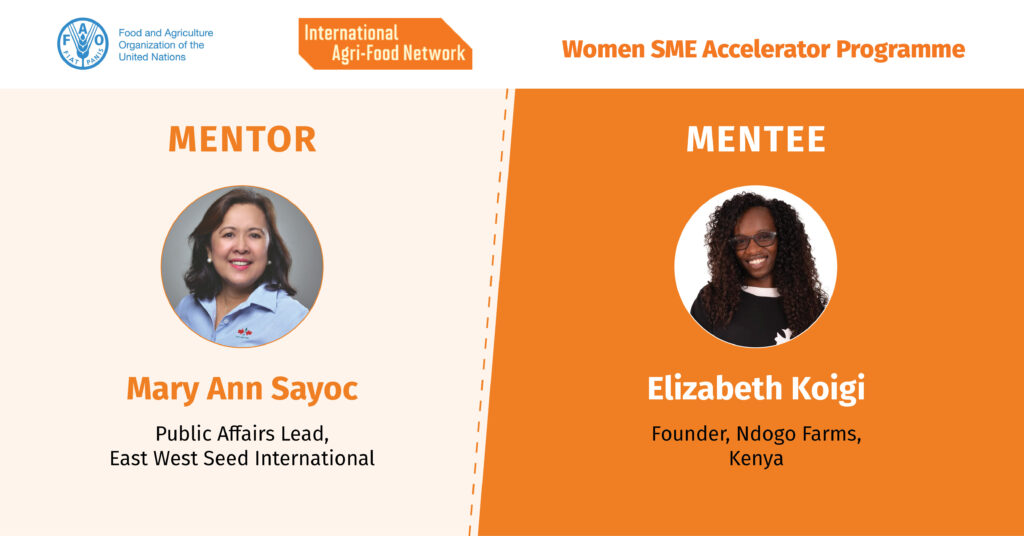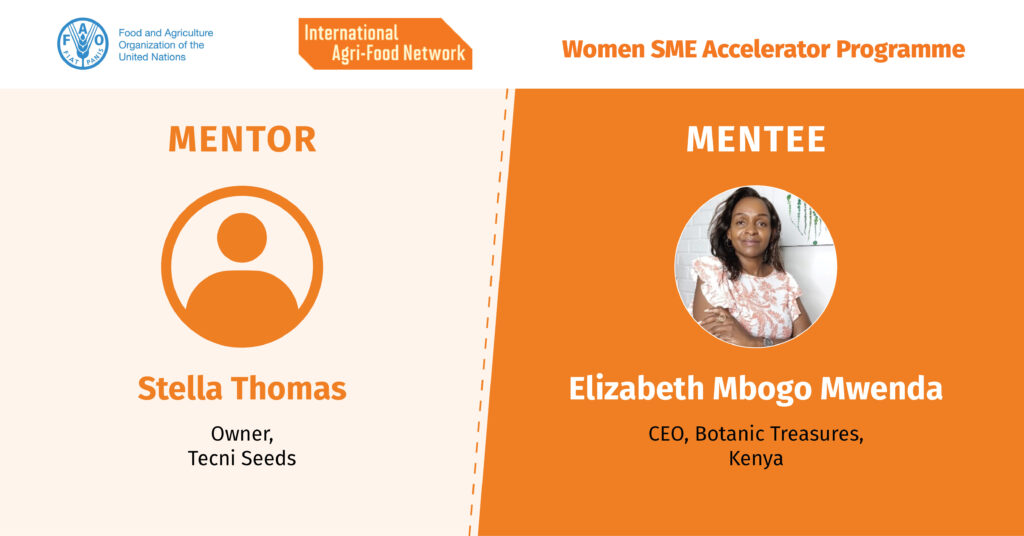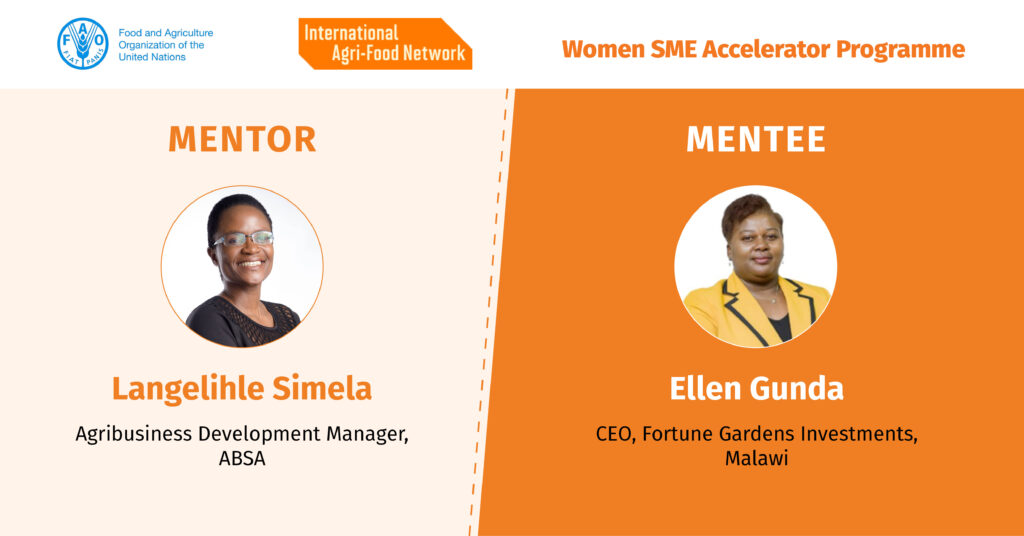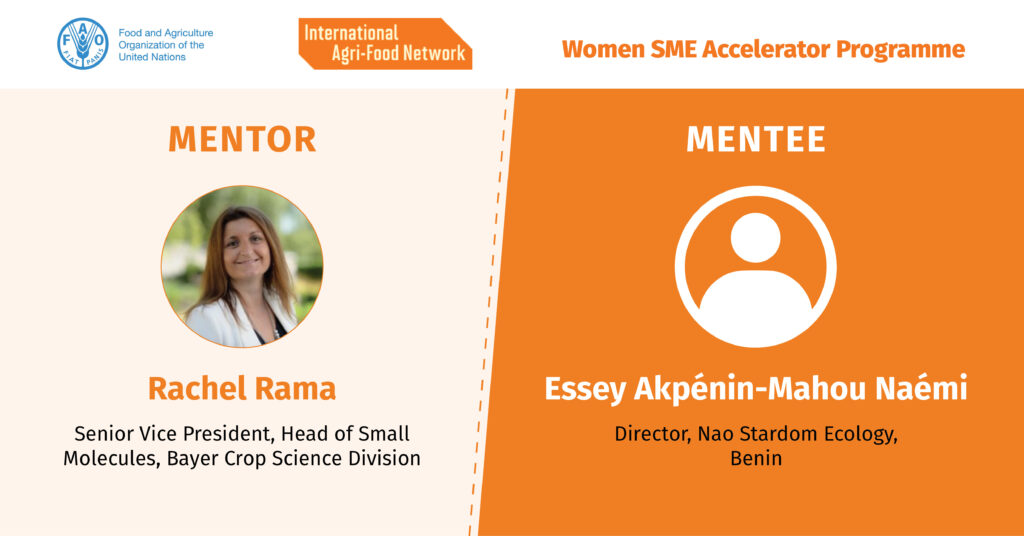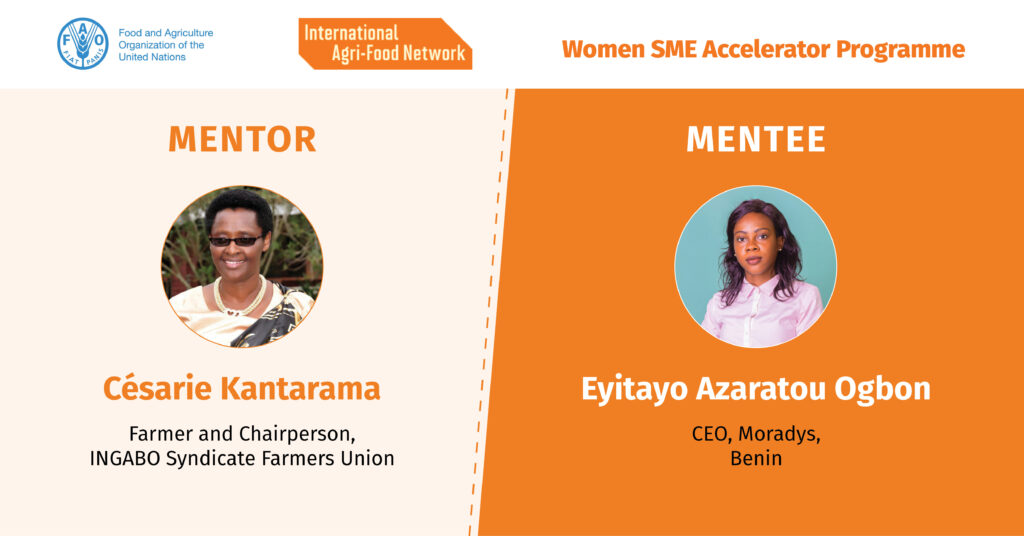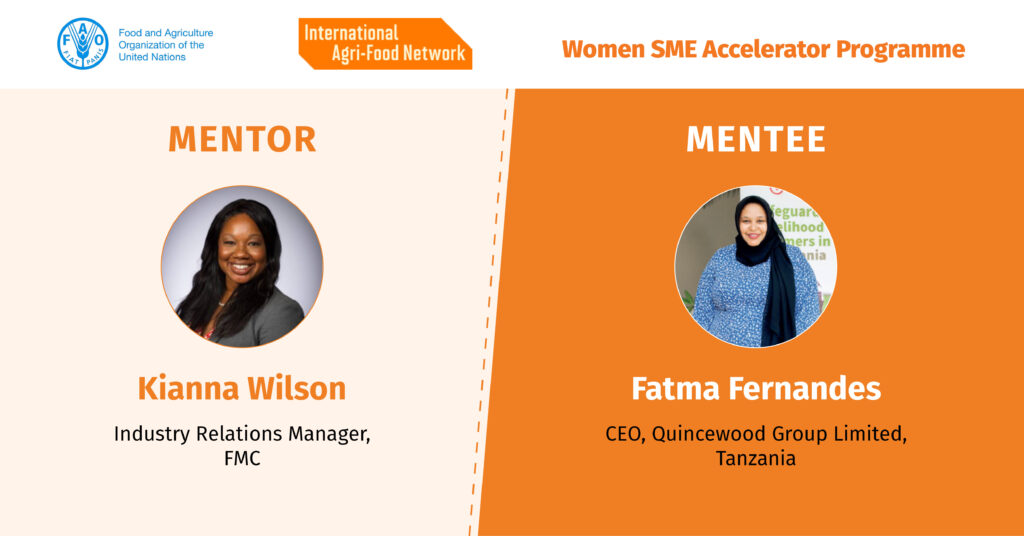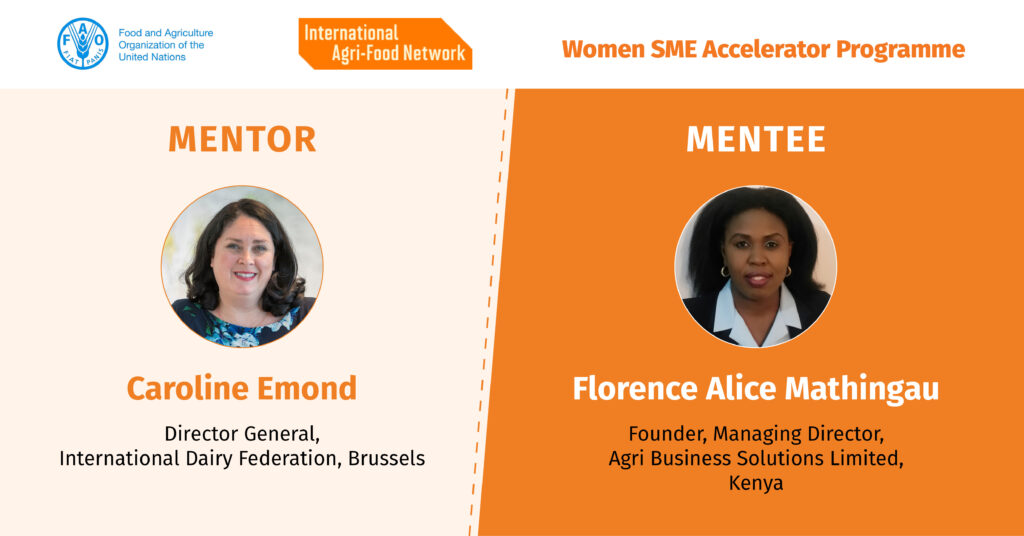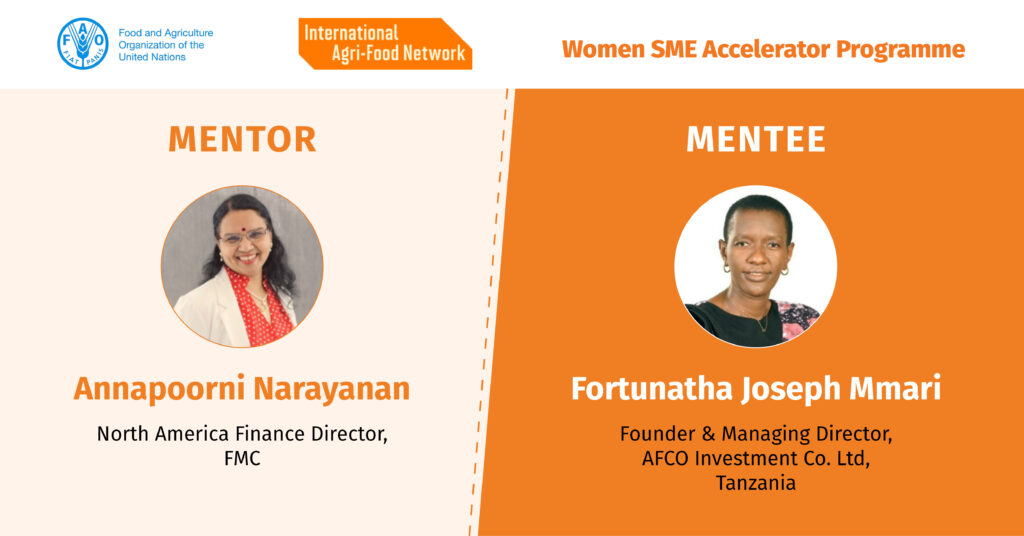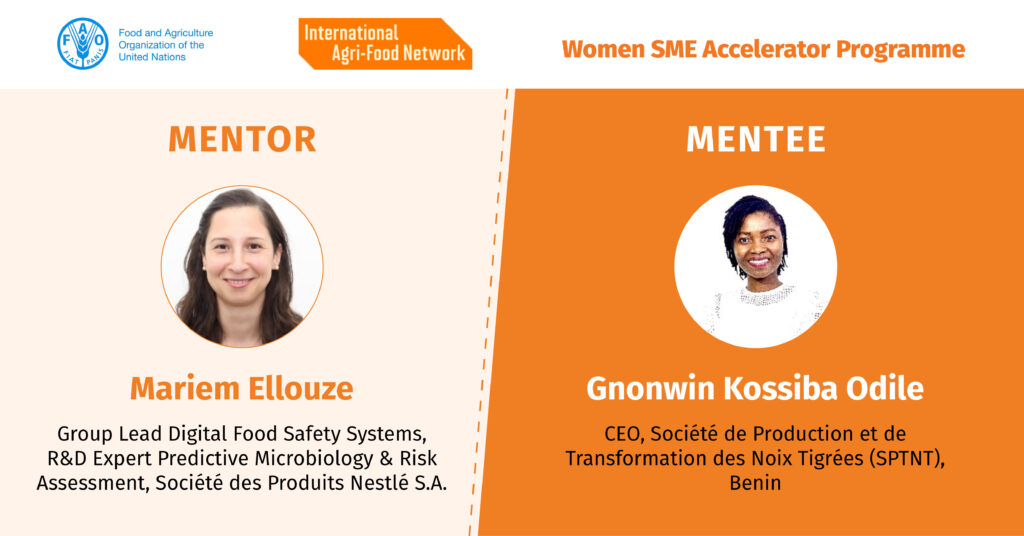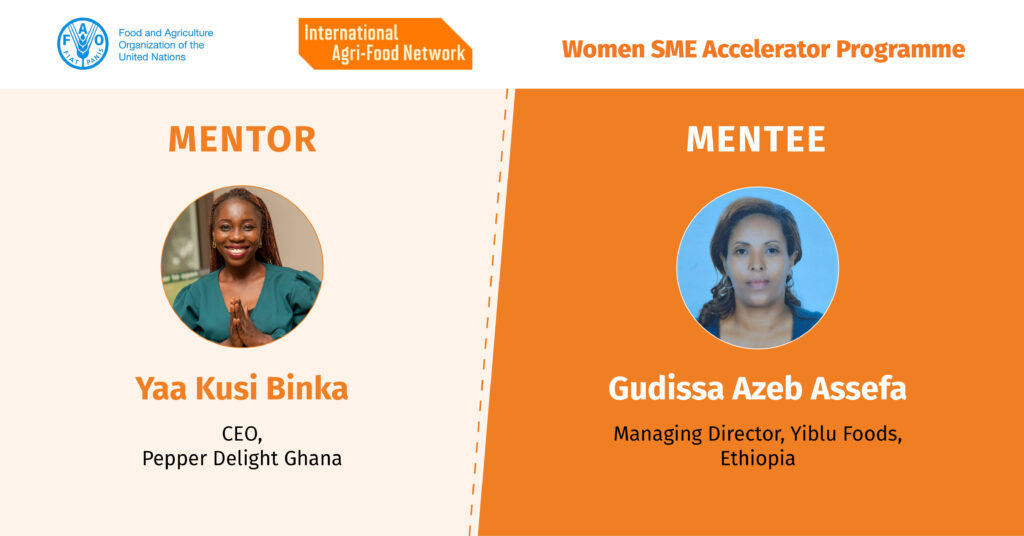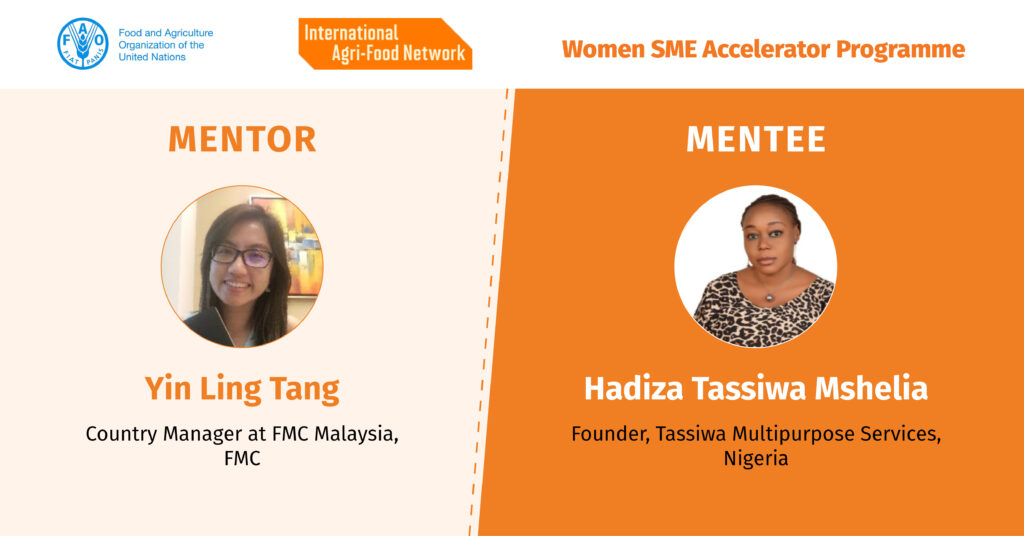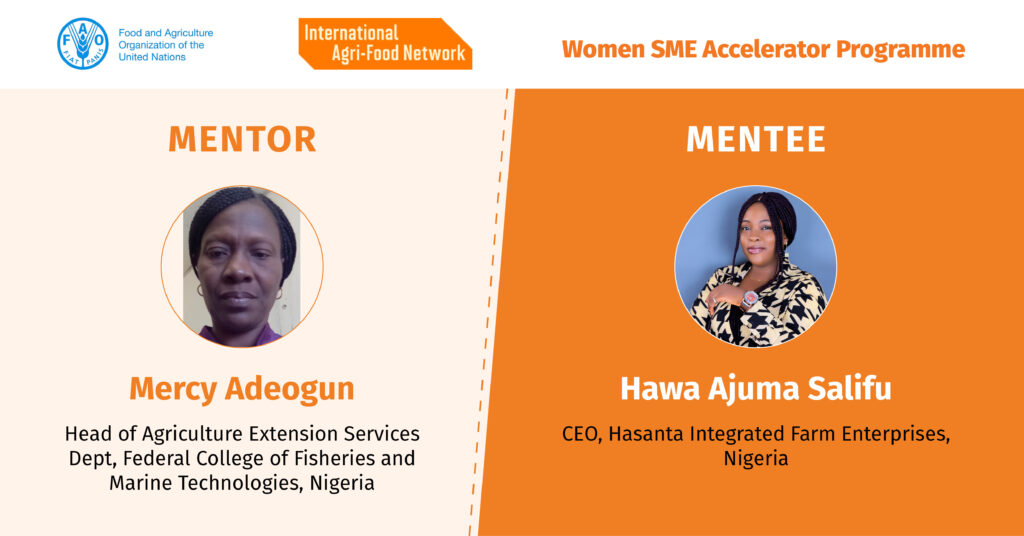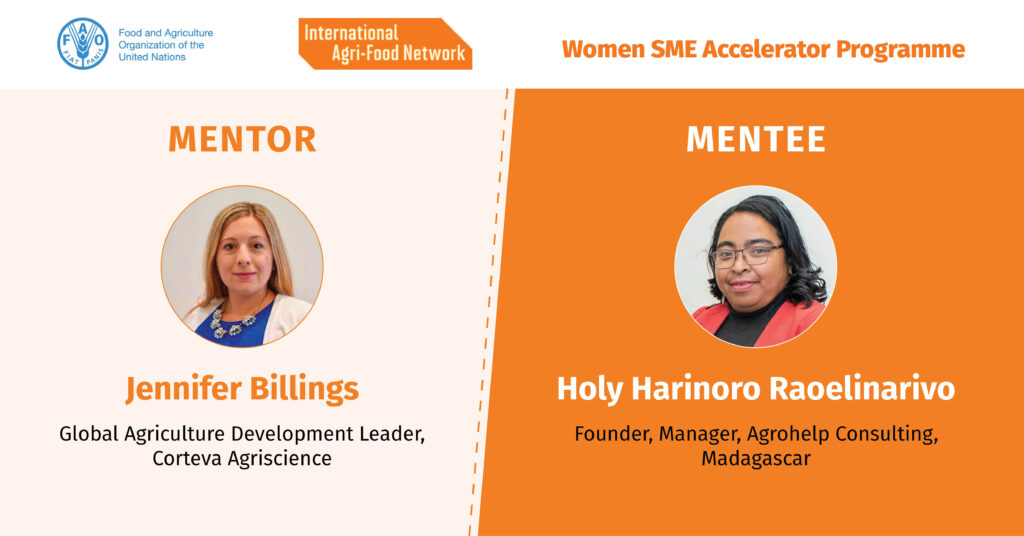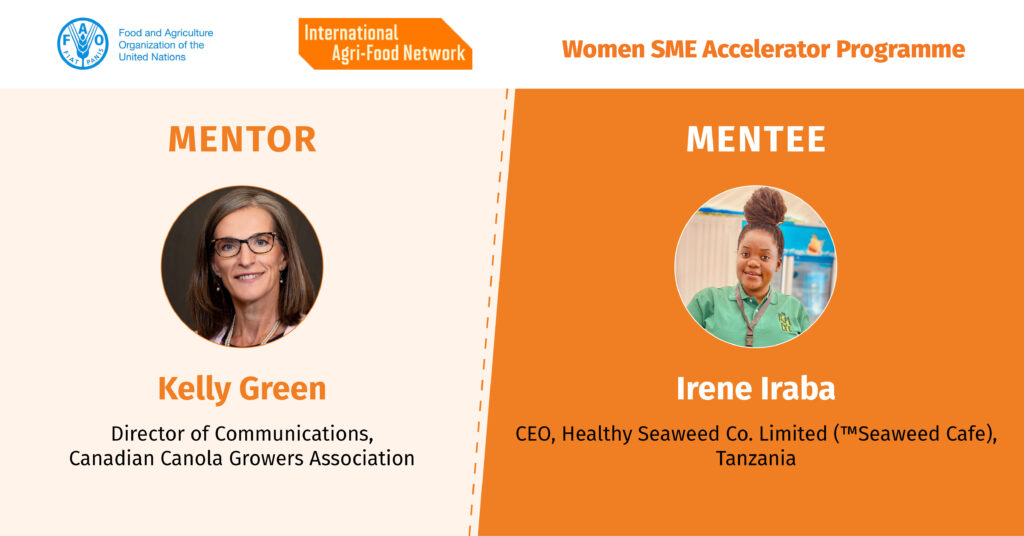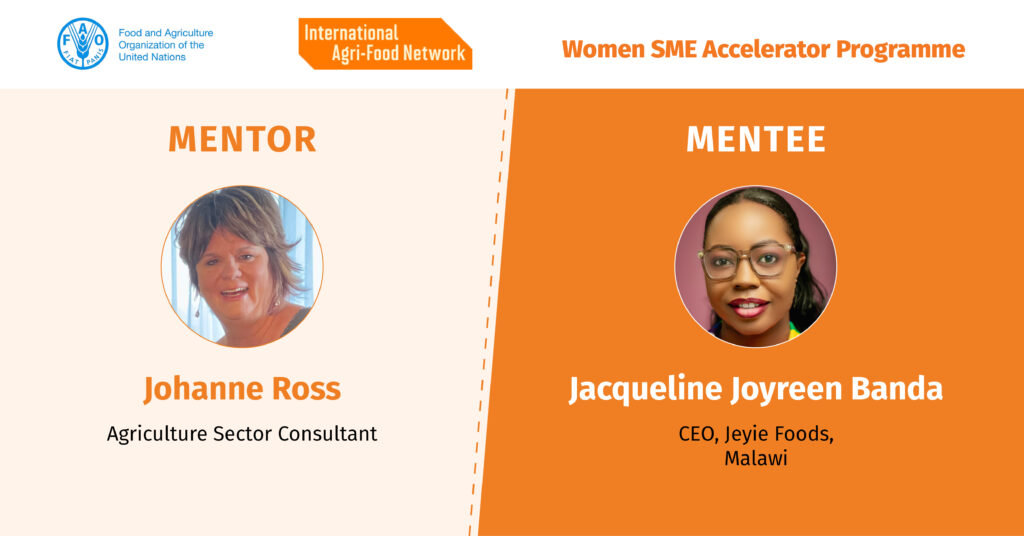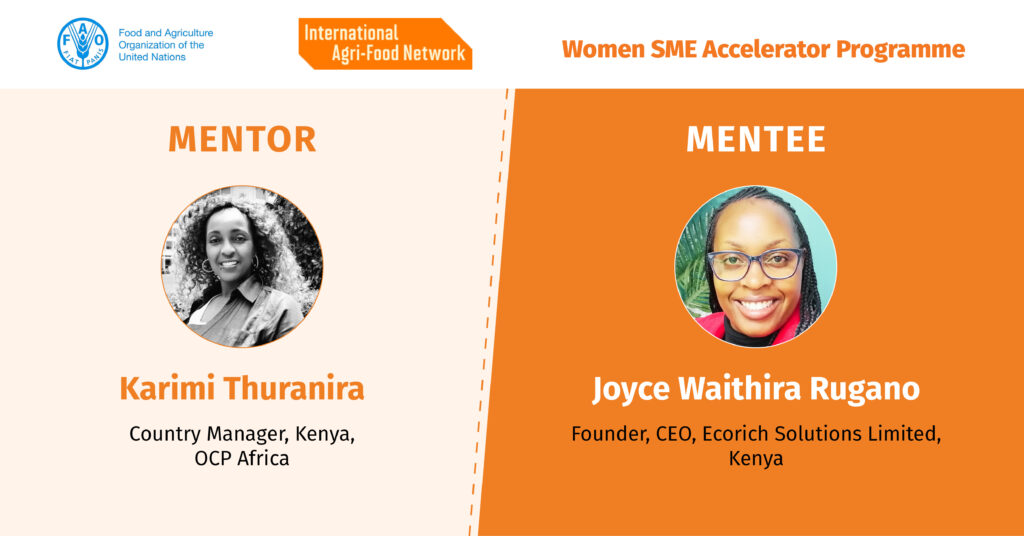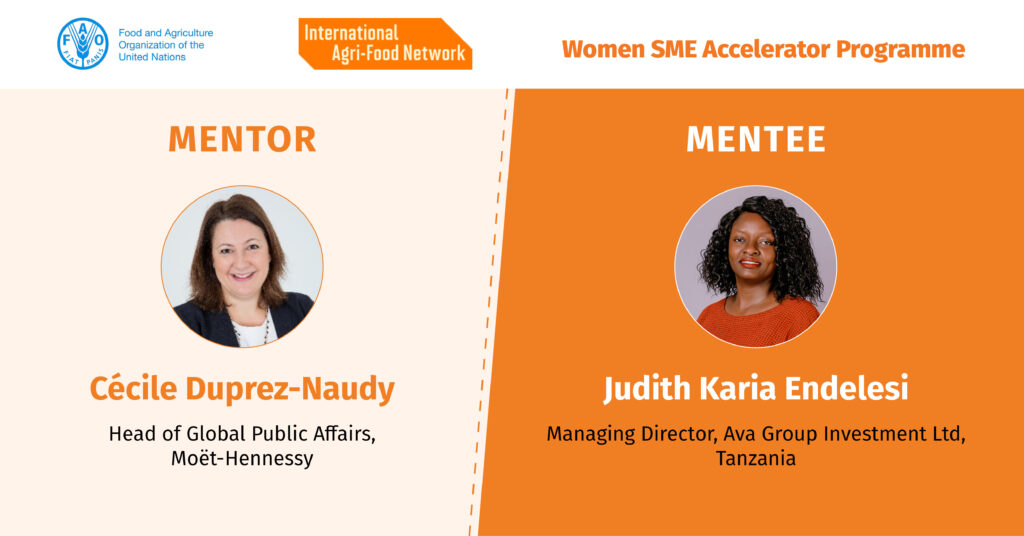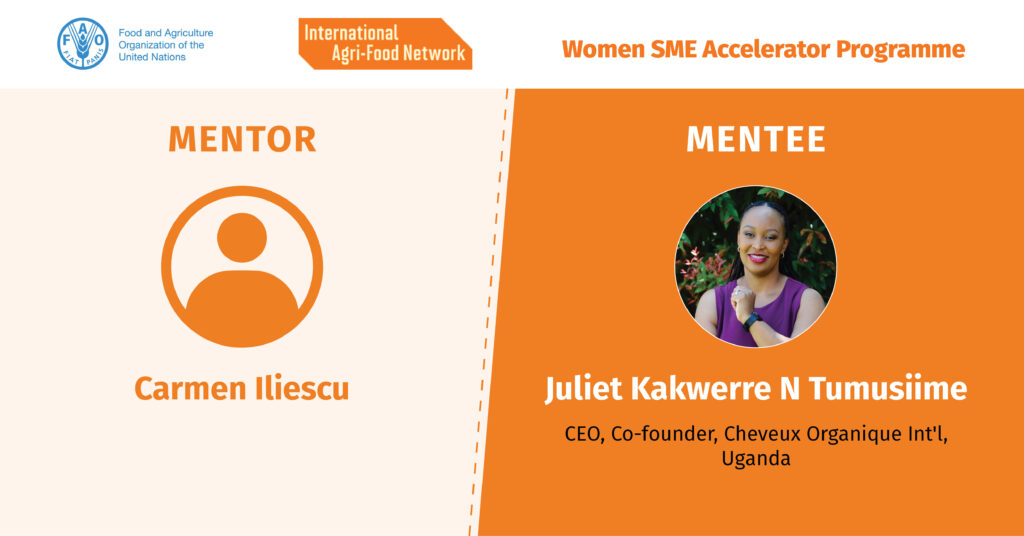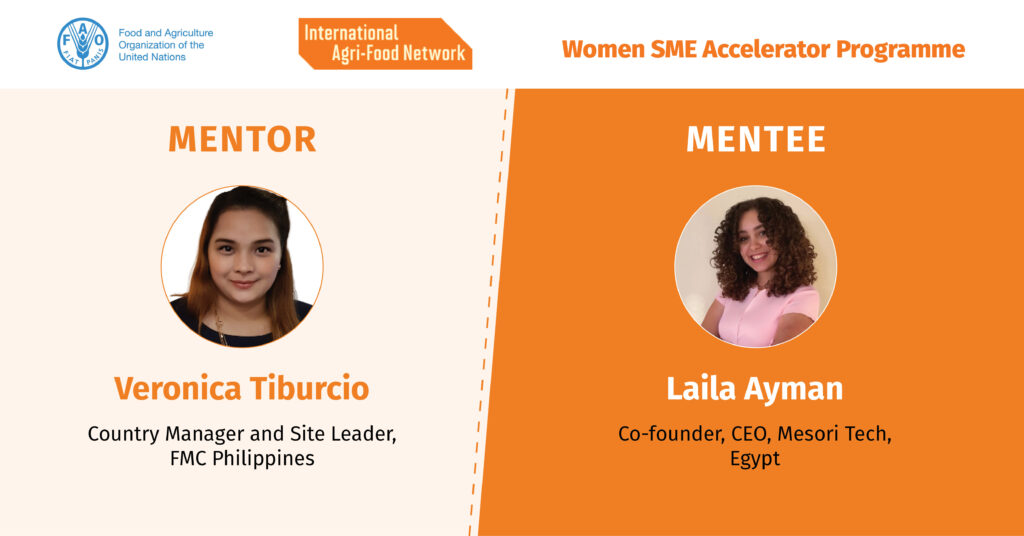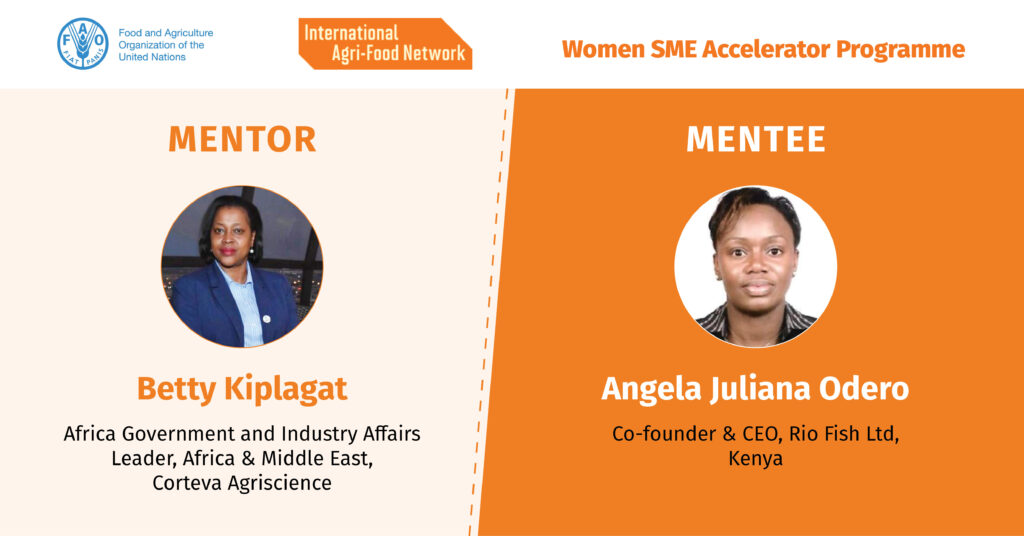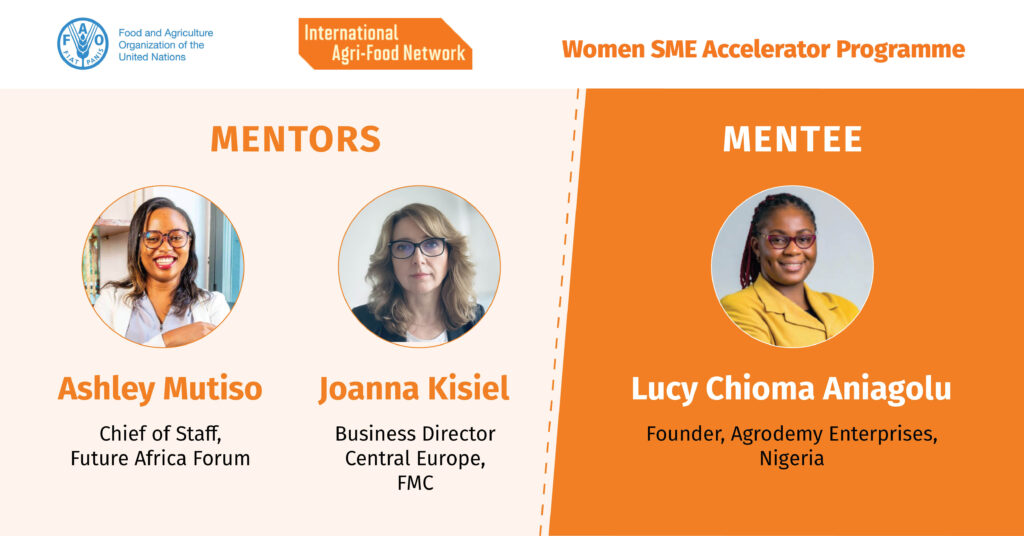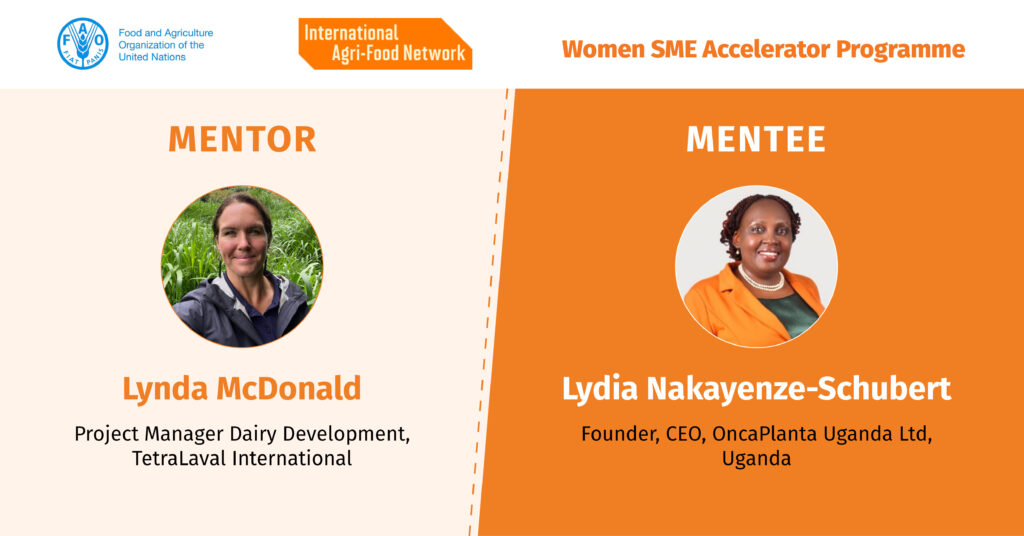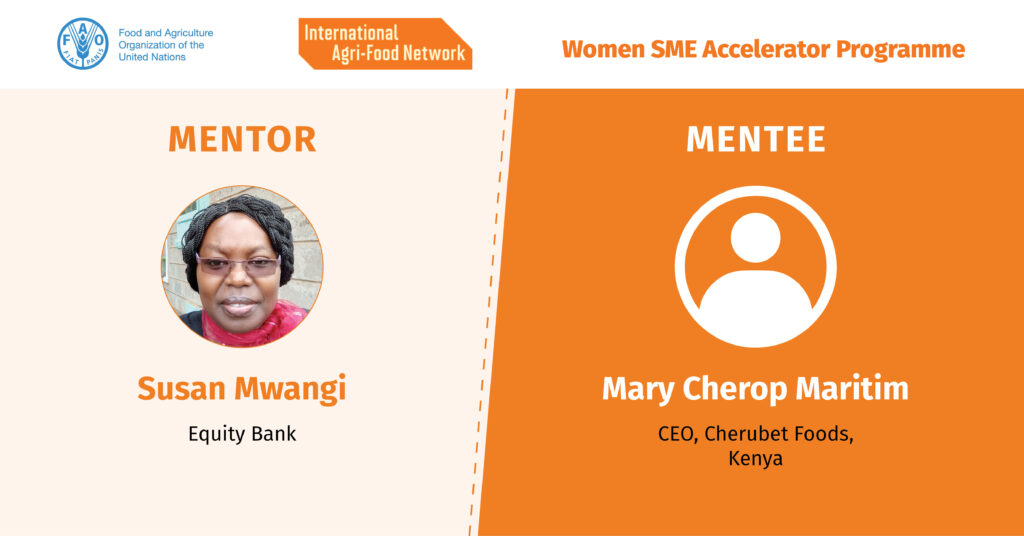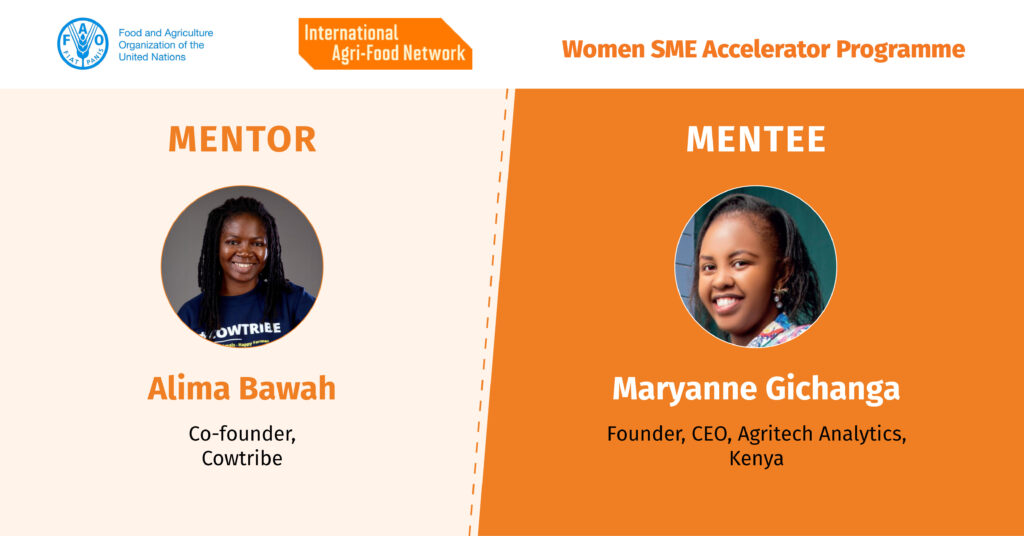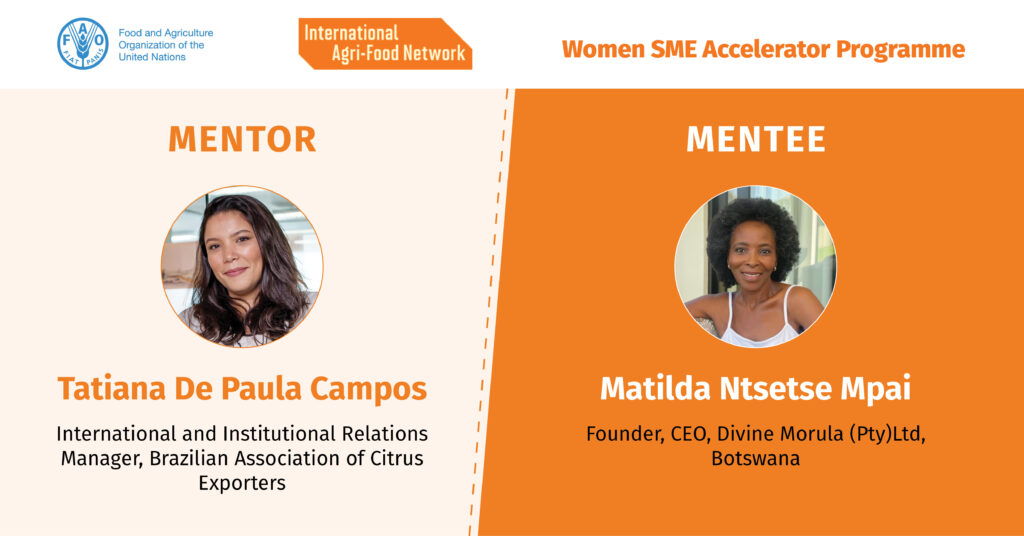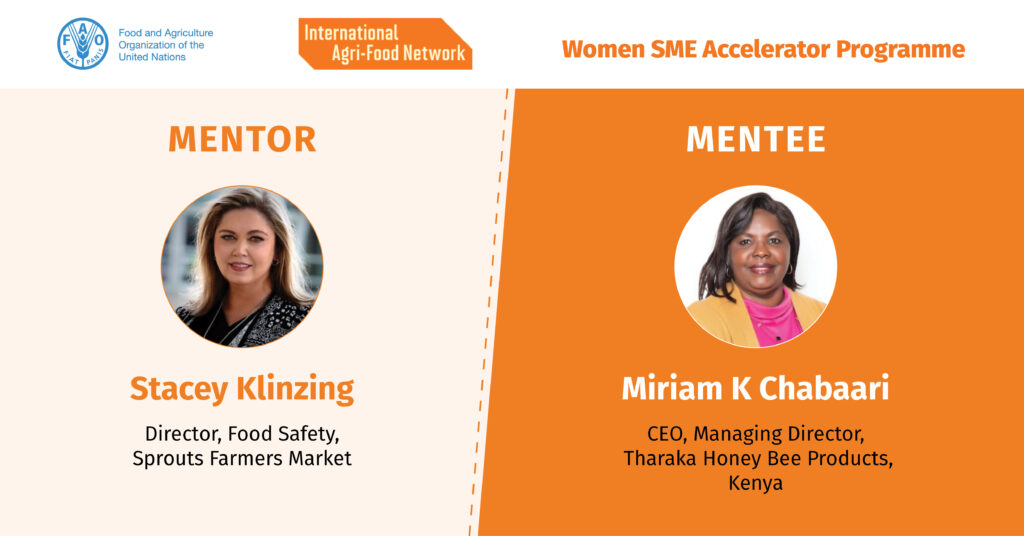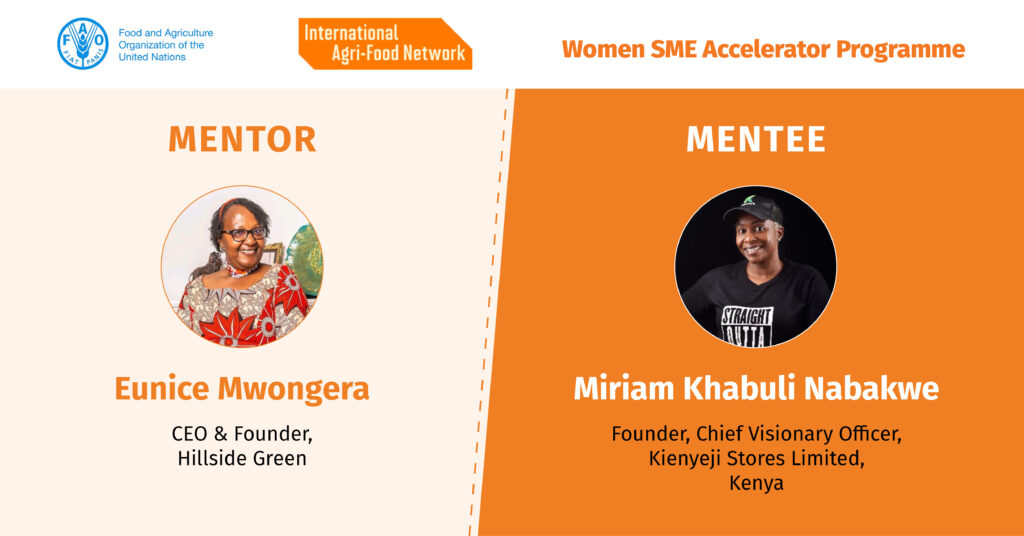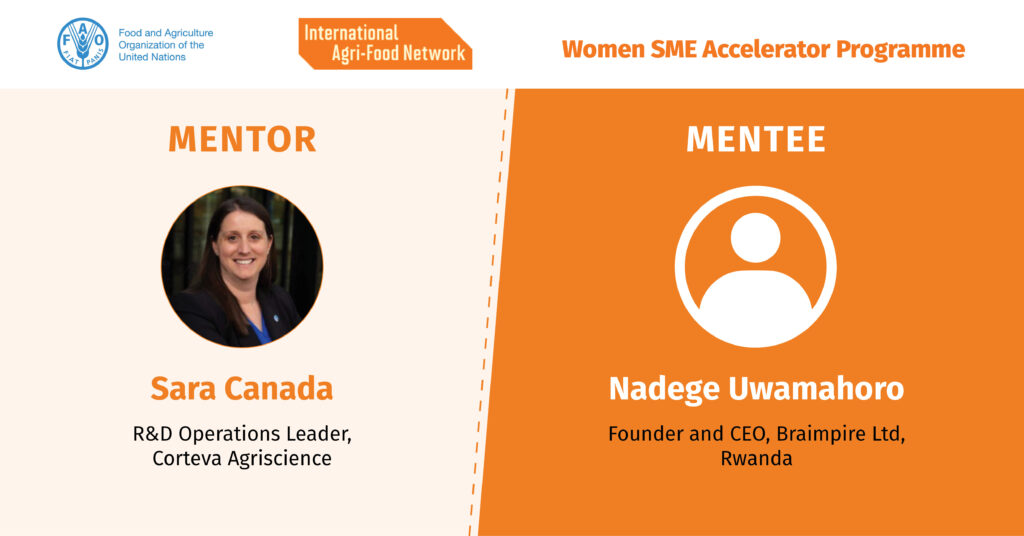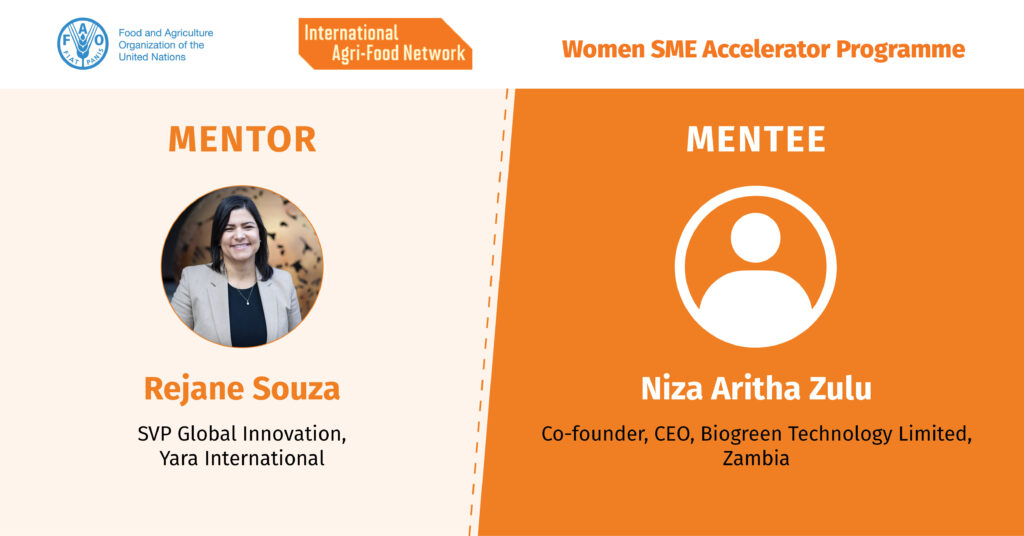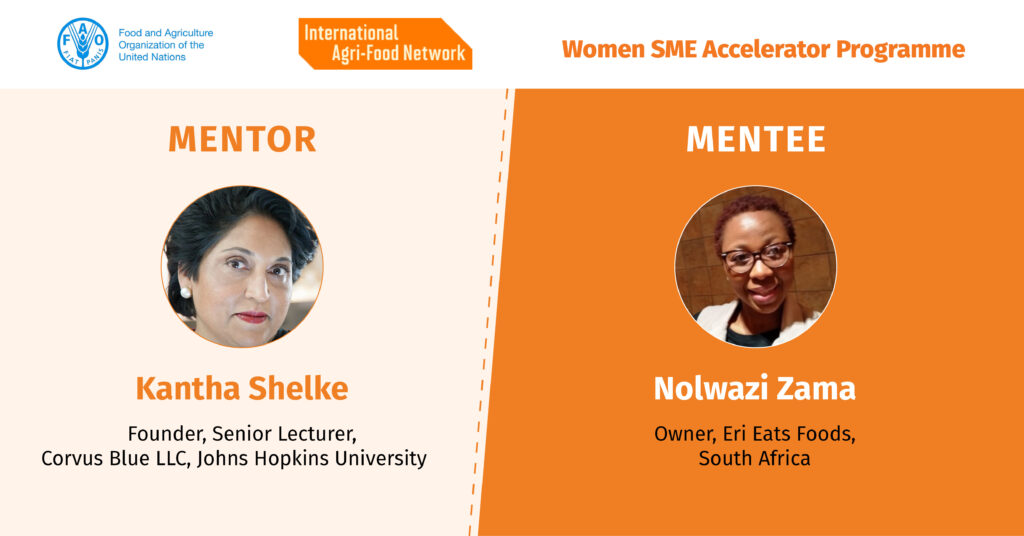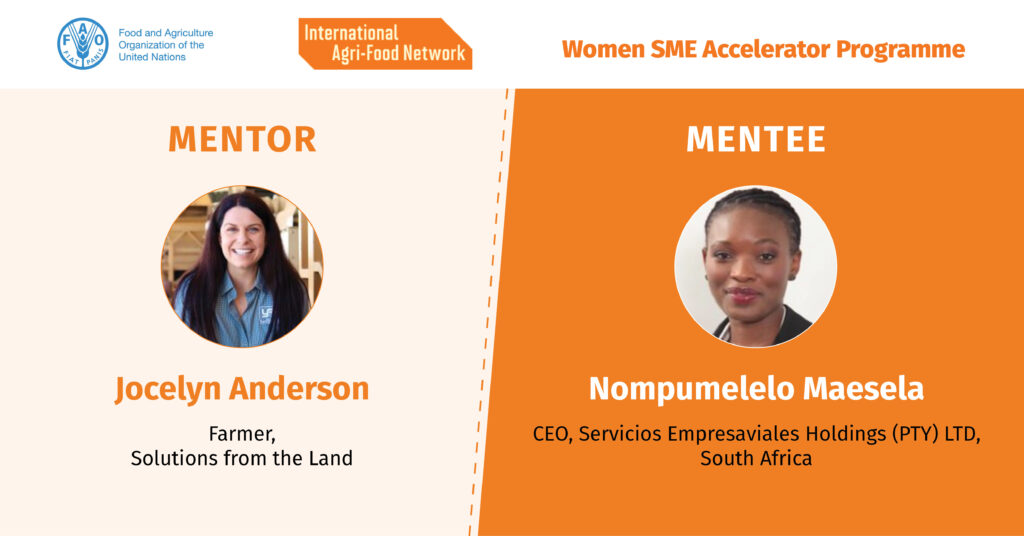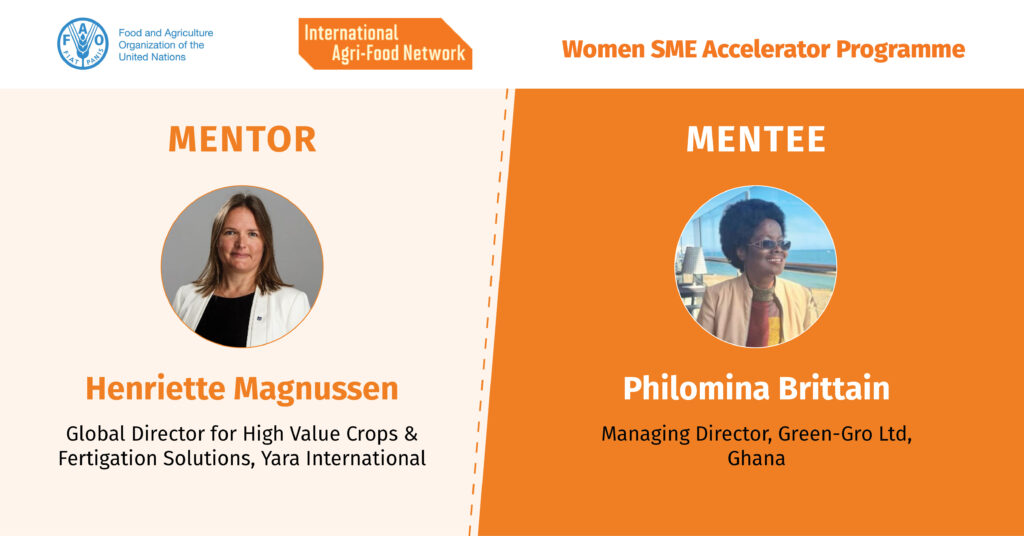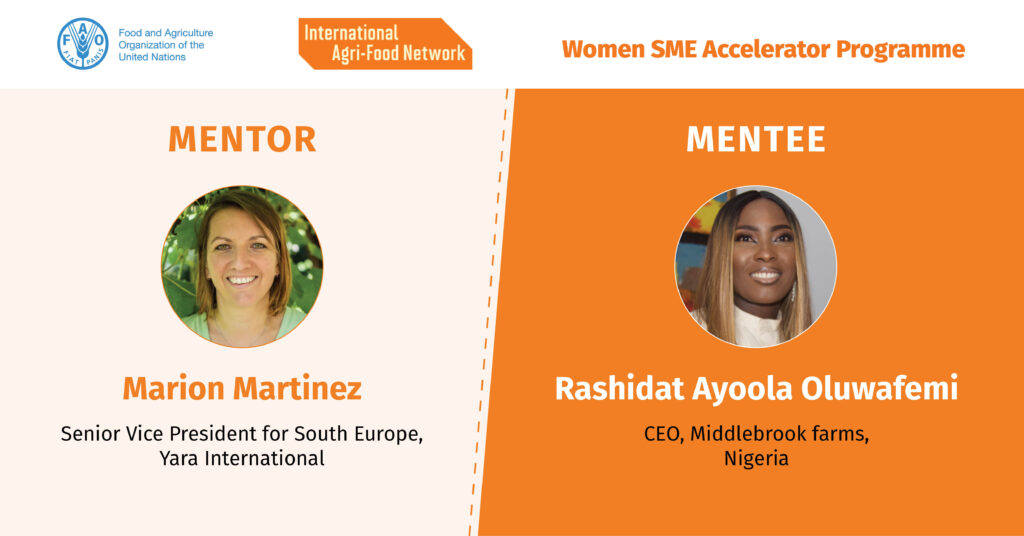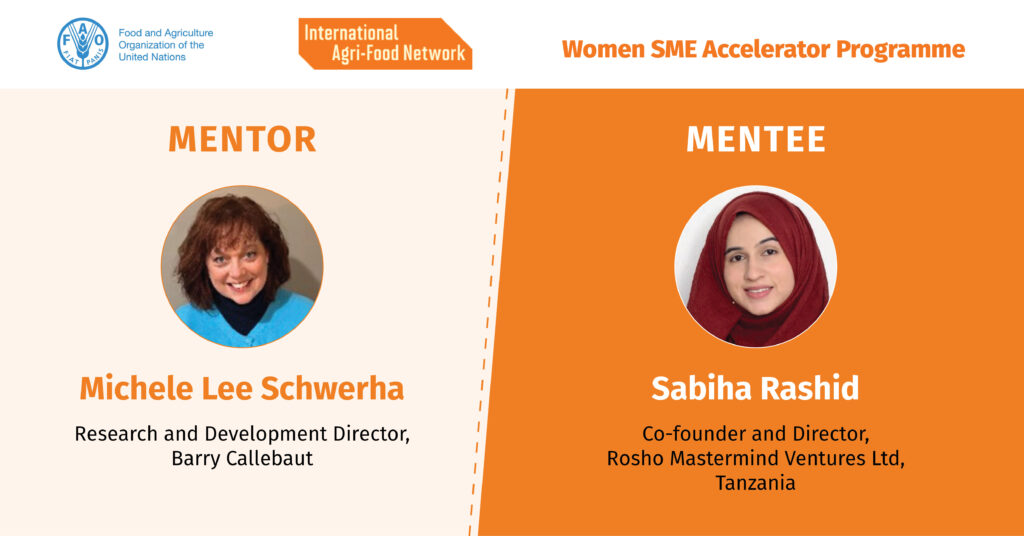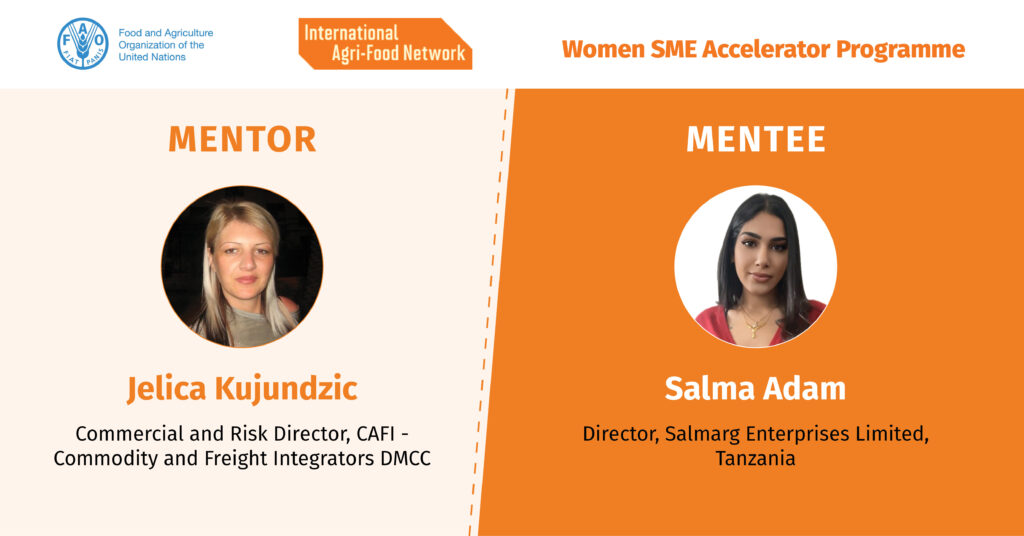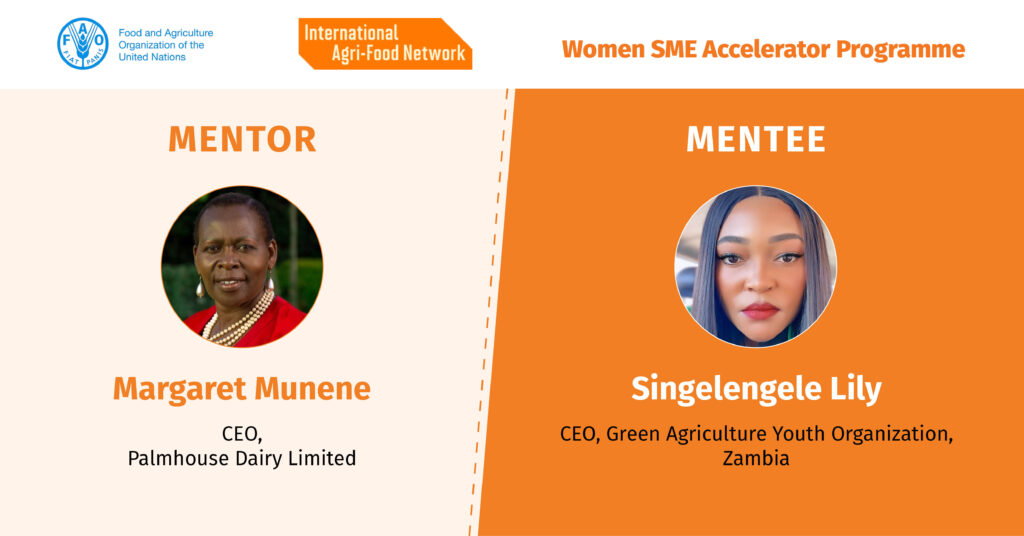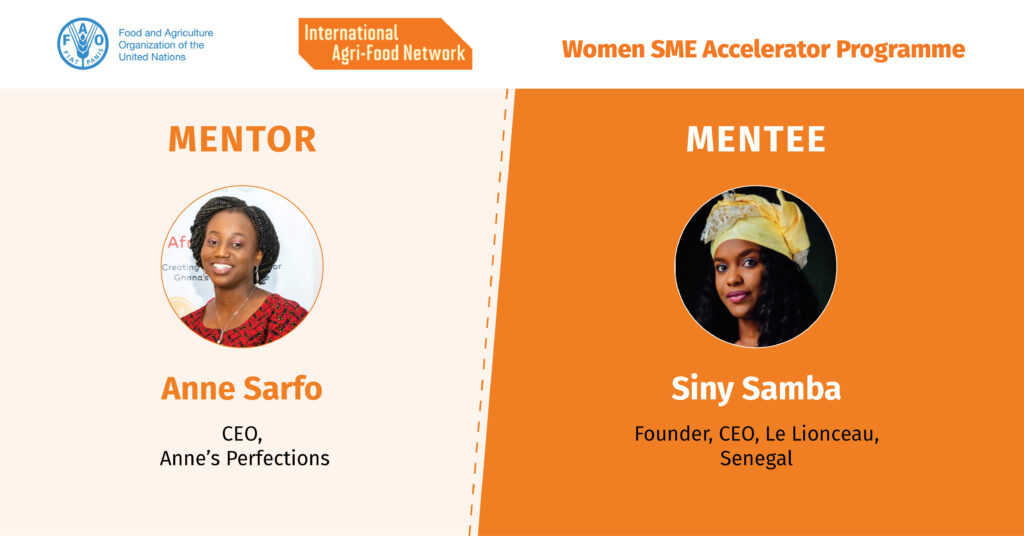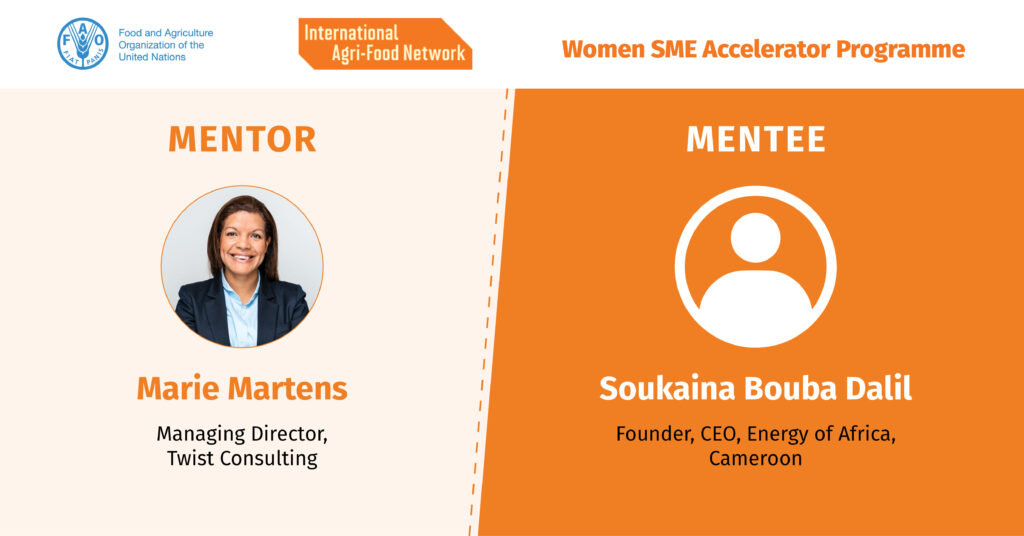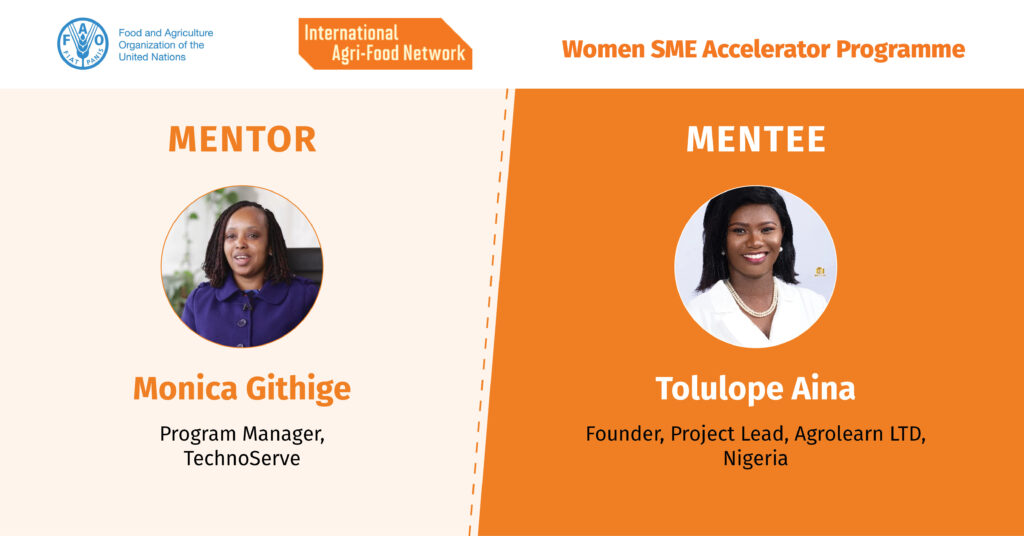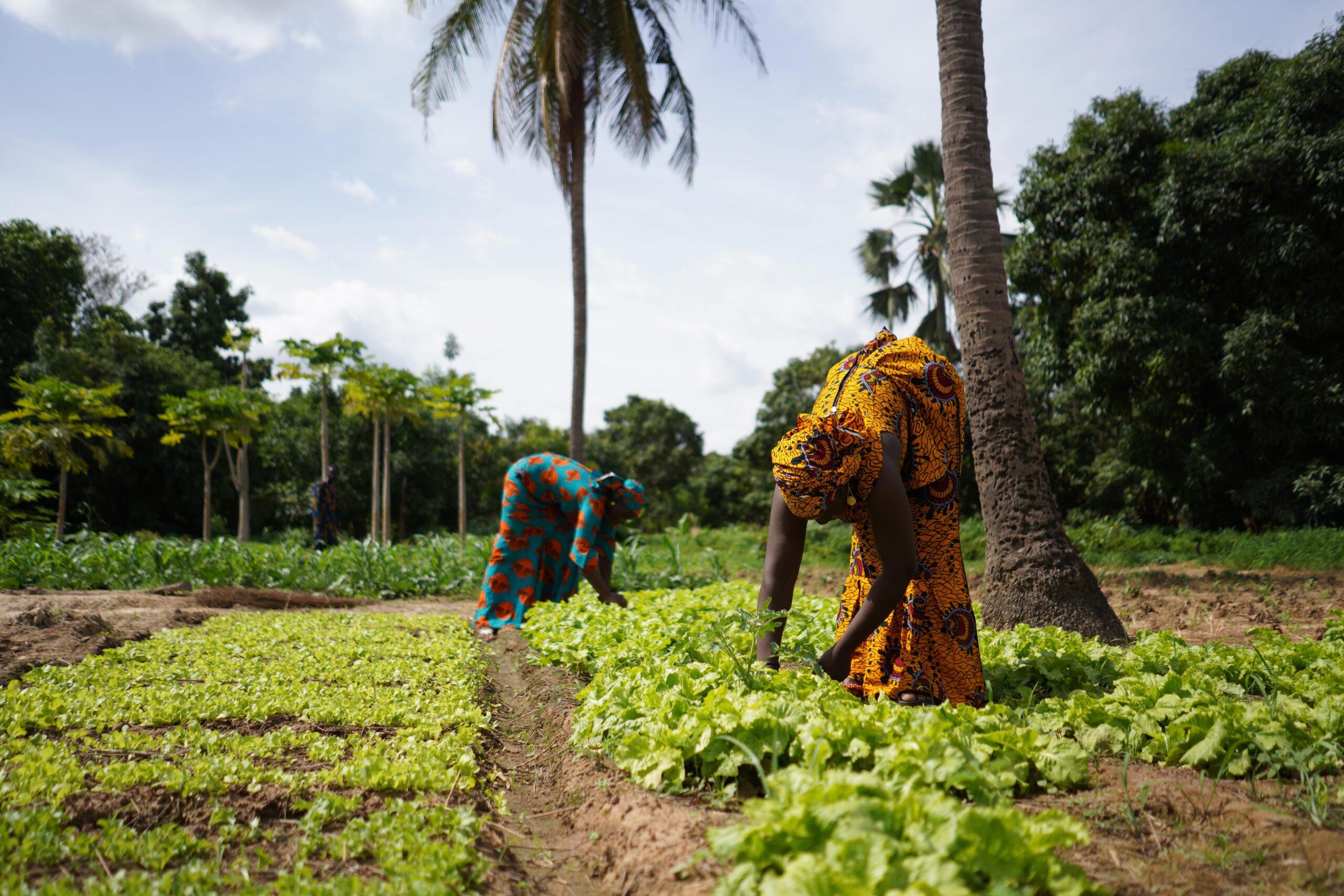
Women SME Accelerator Programme
In October 2022, the Food and Agriculture Organization of the United Nations (FAO) and the International Agrifood Network (IAFN) launched the Accelerator Mentorship Programme to support women entrepreneurs in addressing the key challenges and constraints they face in their businesses. Each year, the programme benefits 50 women entrepreneurs who are paired with 50 global women leaders in the agriculture sector as mentors. The mentees also participate in 3 tailor-made workshops where they are coached on various aspects of running their business. The programme also includes dedicated capacity development and short training sessions offered on the FAO eLearning Academy. At the end of the programme, the mentees receive certification that has many benefits for their businesses.
Gender equality and women empowerment is central to FAO’s mandate – to achieve food security for all and reduce rural poverty. Ensuring gender equality and empowering women operating within the agrifood systems presents a unique opportunity to ensure that women-owned businesses not only invest in the agriculture and food, but that they are actively contributing to the agrifood systems transformation we are calling for.
For the International Agri-Food Network, a global network of private sector actors involved in the agrifood sector and committed to contributing to addressing global poverty and food security, ensuring women’s leadership and expertise feed into work on food security such as guidelines and initiatives related to land, investment, and nutrition, particularly for women smallholder farmers, is also a huge priority.
28 Countries Represented
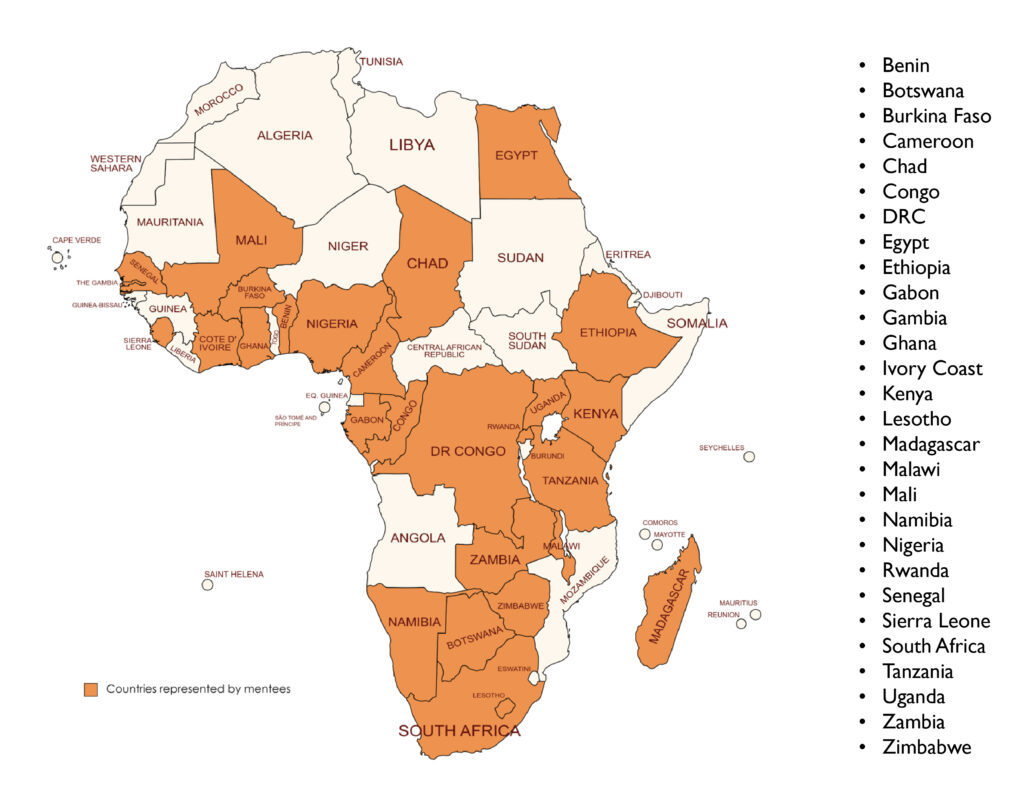
Value Chain Activities 2022-23 Cohort
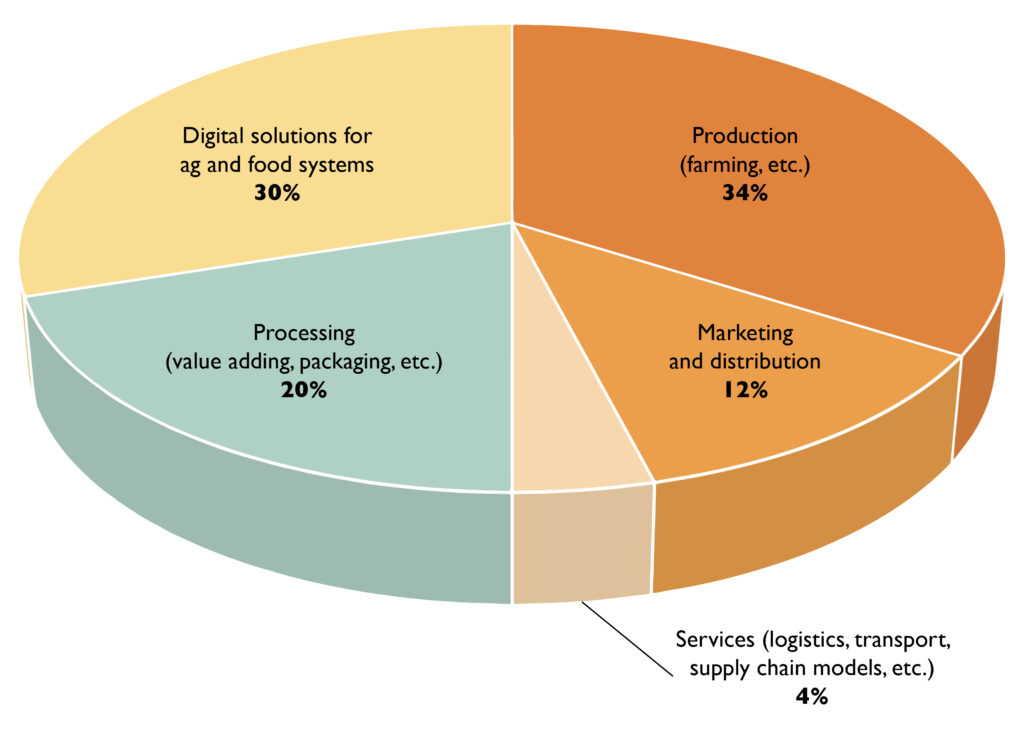
Value Chain Activities 2023-24 Cohort
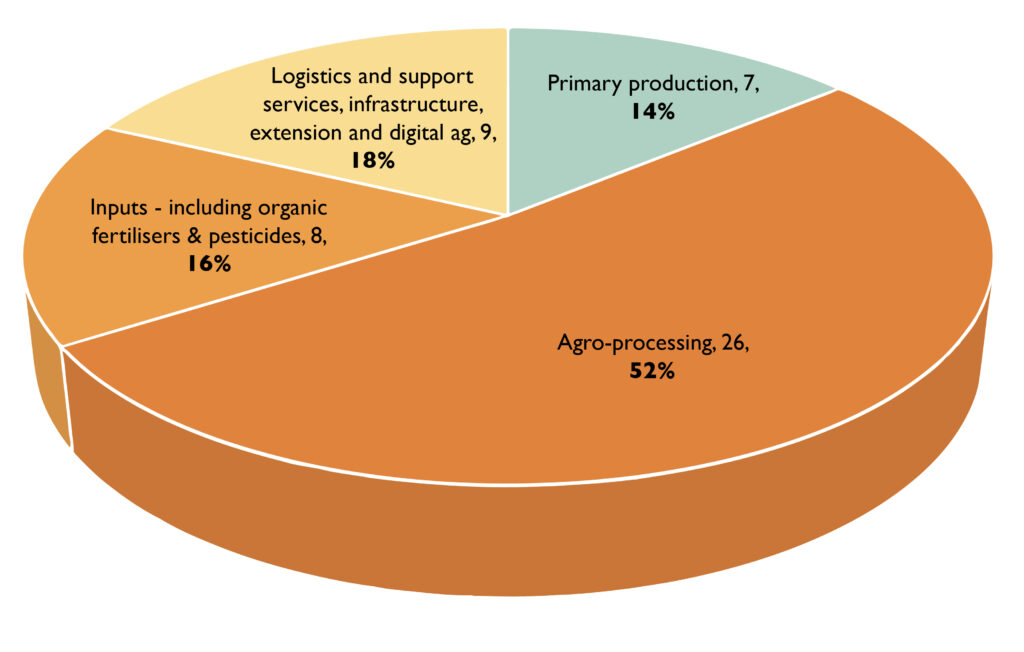
Background
Women agripreneurs are fundamental drivers of sustainable development and play a critical role towards the pursuit of more inclusive and prosperous societies. They play a significant role in job creation, improving household incomes, and in bringing about benefits beyond economic growth, especially in developing countries. The empowerment of female agripreneurs, in particular those who lead and own small and medium enterprises (SMEs) active in agrifood value chains, is therefore key to enhance their contribution to development, as well as to enable them to grow and expand their businesses in an economically, socially and environmentally sustainable manner.
In Sub-Saharan Africa (SSA), women constitute at least 50 percent (over 600 million) of the current population size, and female participation in entrepreneurial activities is considered the highest amongst all regions. In addition, women provide the bulk of unpaid care and domestic work in rural areas, thereby supporting current and future generations of rural workers within their households and communities. African women entrepreneurs are key drivers of development, inclusive growth, and prosperity. Despite their significant contribution to the agriculture sector, rural women typically find themselves in disadvantaged positions. Compared to their male counterparts, they tend to face more restricted access to productive resources and assets, capacity development, financial services and social protection. Gender-biased social norms, laws and practices also limit women’s involvement in gainful work and their participation in workers’ and producers’ organizations, especially in organized labour institutions such as trade unions.
At the same time, SMEs in the region are the backbone of the region’s private sector – representing 90 percent of the private sector in the region, and contributing to over 80 percent of jobs in the continent. Nonetheless, the challenges for SMEs, particularly those operating in agrifood systems, are many, with access to finance being the largest obstacle, followed by difficulties in doing business as a result of burdensome laws and regulations, as well as limited capacities and access to knowledge and technology also considered as challenges preventing them from expanding. COVID-19 has added to the pressures of business survival, growth and sustainability, and has served to urgently highlight the need for partnerships, leveraging knowledge, and innovative business models and strategies. For young women entrepreneurs, these challenges are even greater.
Duration
The duration of the programme has been extended to 9 months, to run from October 2023 to June 2024.
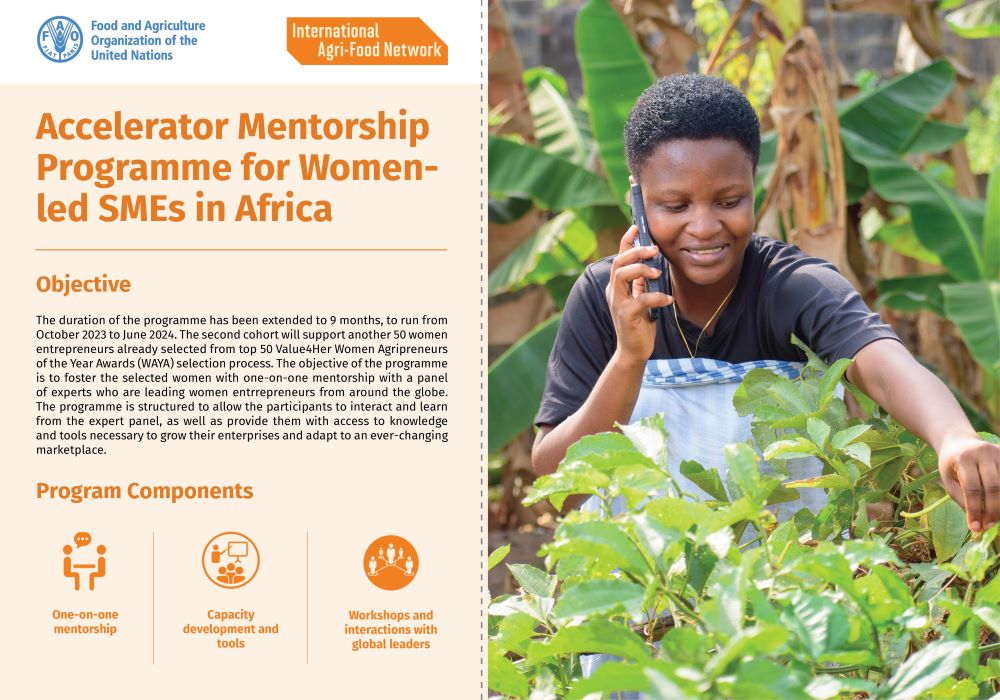
Objective
The objective of the jointly-led Accelerator Mentorship Programme is to foster a selected number of women entrepreneurs in Sub-Saharan Africa with one-to-one mentorship with a panel of experts who are leading women entrepreneurs from around the globe, using a structure through which participants can interact and learn from the expert panel, as well as to provide them with access to knowledge and tools necessary to grow their enterprises and adapt to an ever-changing marketplace.
Specifically, the programme aims to provide selected women entrepreneurs with:
- A one-on-one mentorship/ coaching opportunity;
- A series of tailor-made trainings to enhance hard skills from a selection of available options;
- Knowledge exchange, networking and peer-learning opportunities; and
- Access/links to tools developed by FAO, IAFN and other institutions.
Workshops
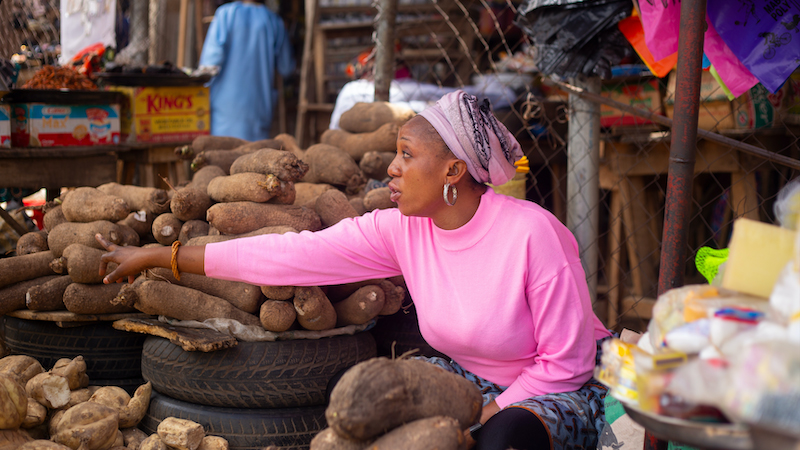
WORKSHOP 1
Business Development & Marketing
November 2023

WORKSHOP 2
Leadership and Human Resource
February 2024
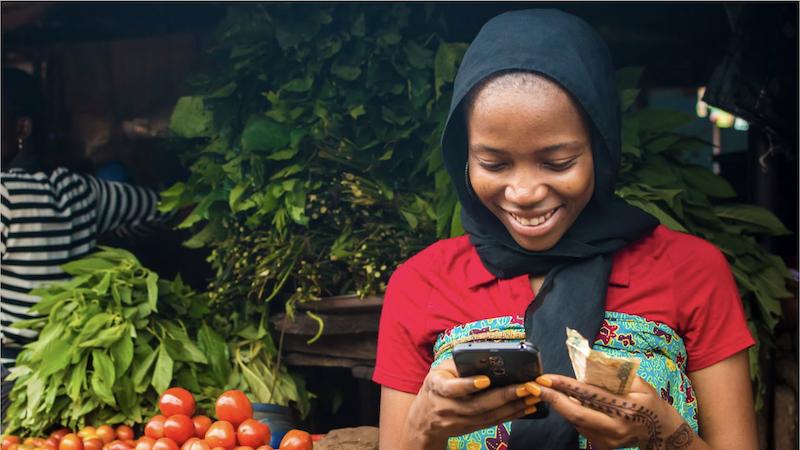
WORKSHOP 3
Finance Access
April 2024
RECENT PROGRAMME UPDATES
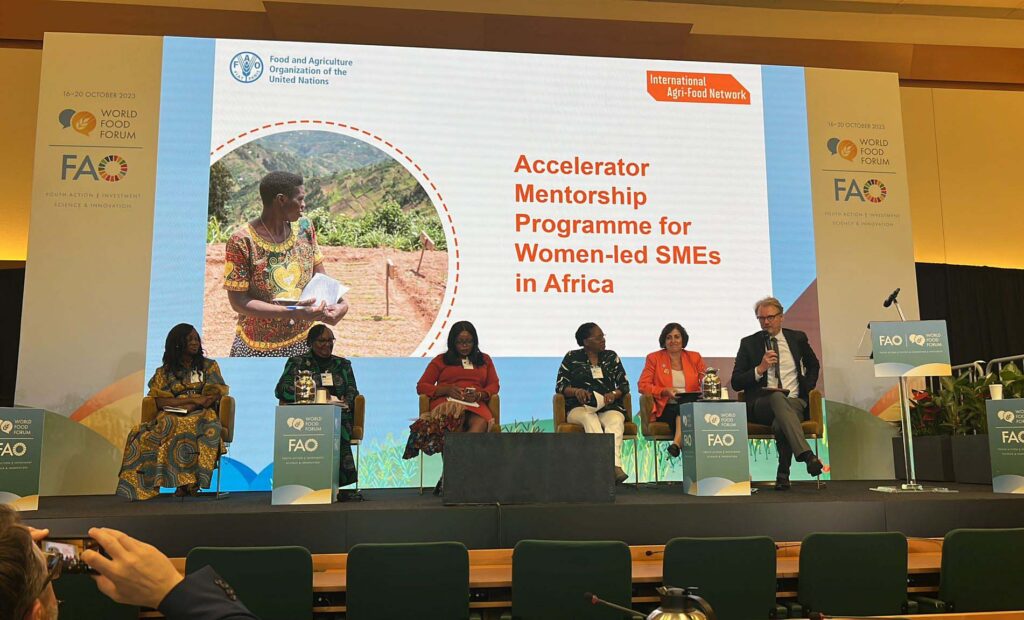
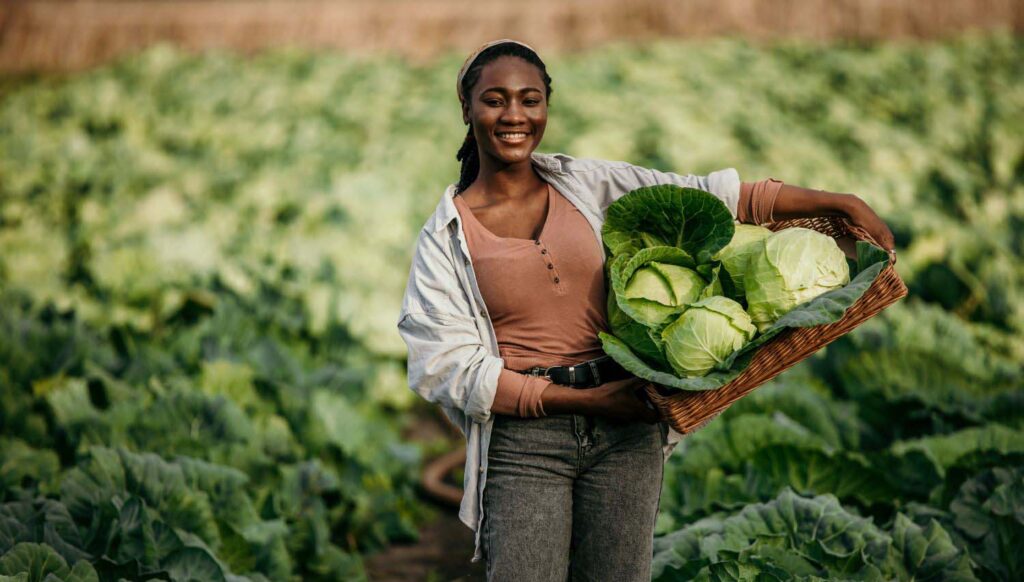
MEET OUR PARTICIPANTS
MENTORS
Mentors include successful/high-profile business leaders and managers, particularly women, and a panel of experts in different fields across the agrifood value chain, from FAO and IAFN members.
MENTEES
A cohort of 50 female entrepreneurs operating in the agrifood sector in the Sub-Saharan Africa region were selected to participate in the customised programme.
Participants were selected from an open call for expression of interest, by a panel of experts from FAO and IAFN, and the programme mentors.
View past programme participants here.
Click through the profiles below to learn more about our current participants:

